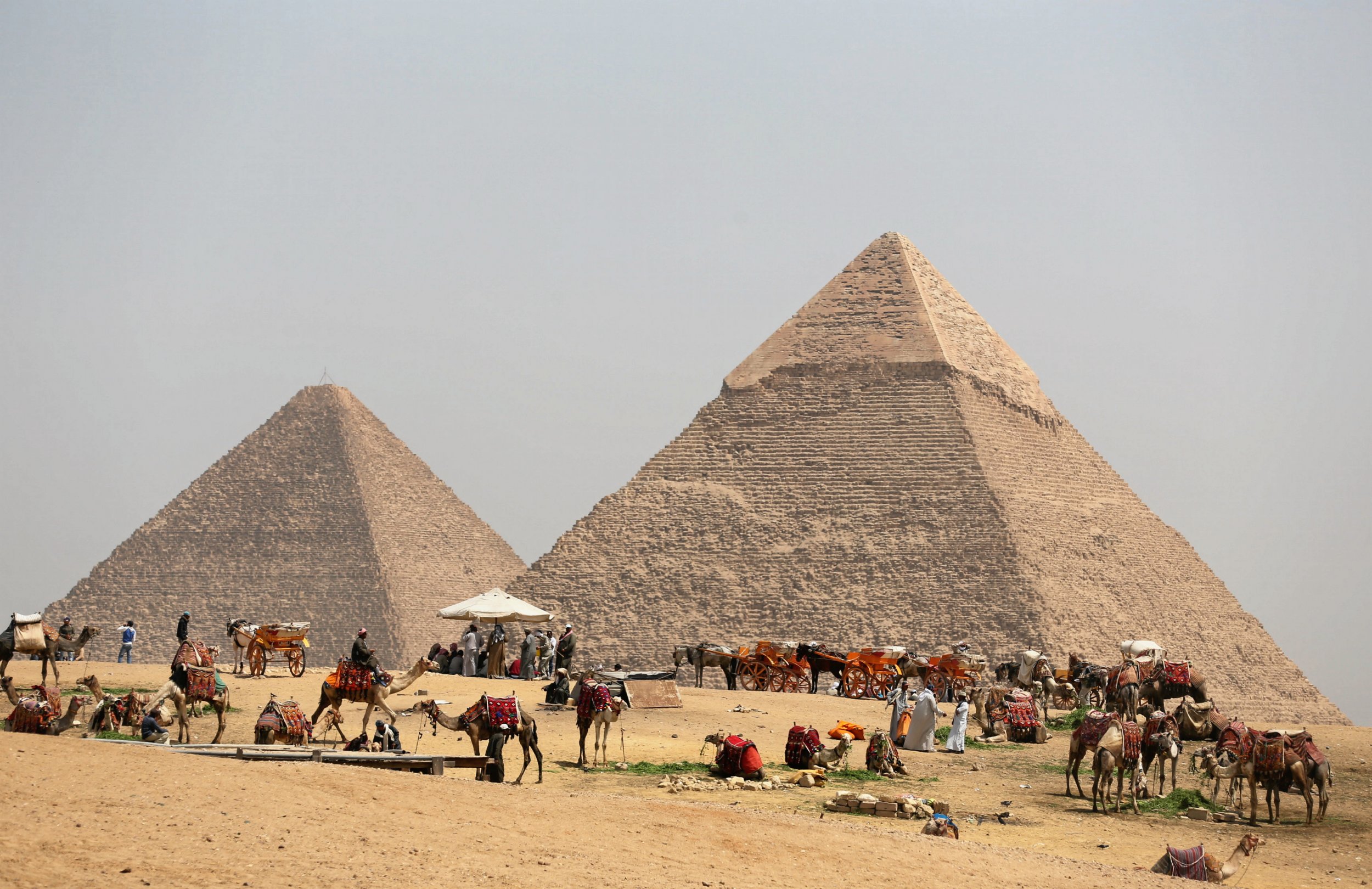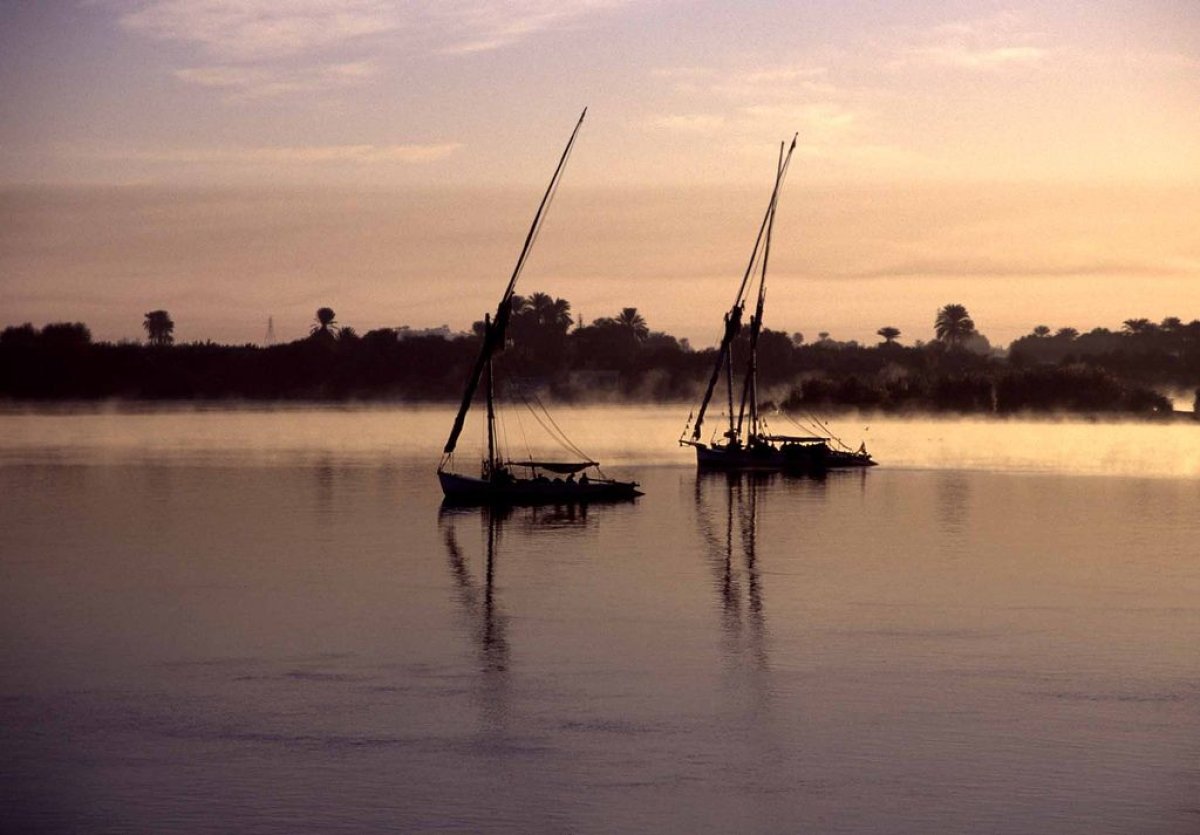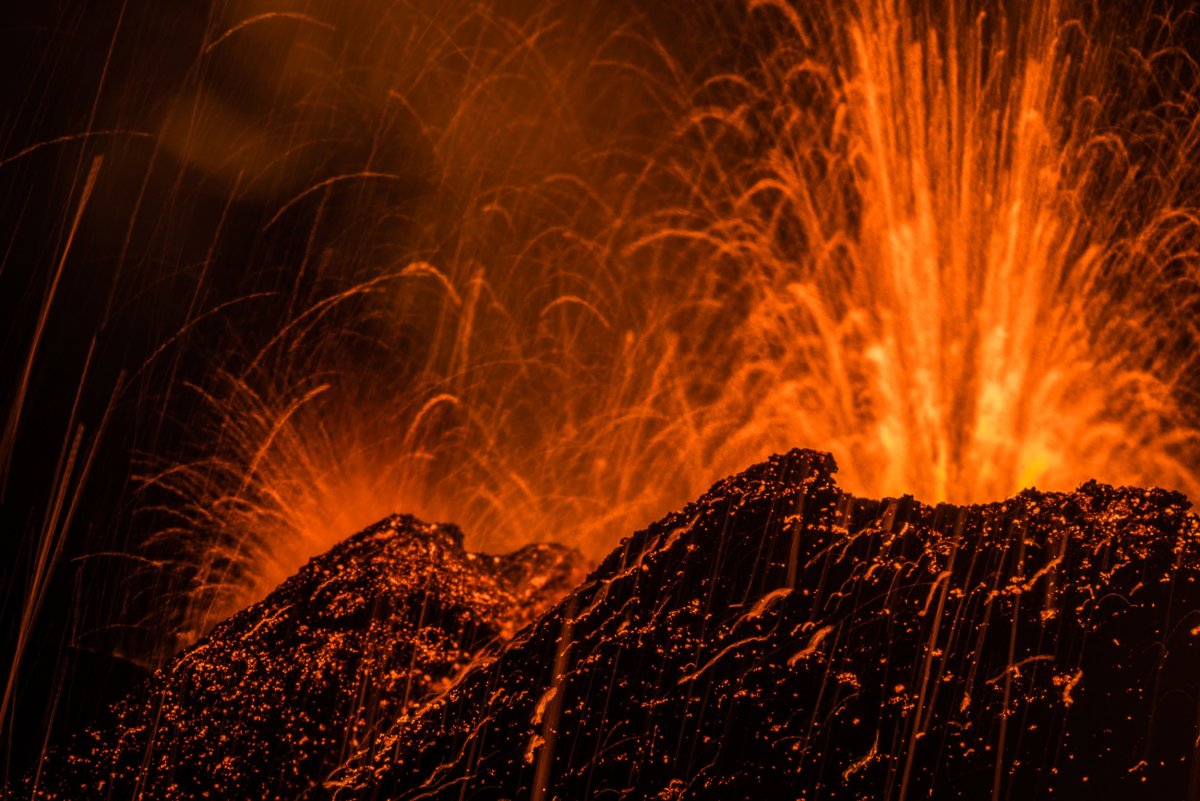
The fall of ancient Egypt over 2,000 years ago may have been triggered by volcanic eruptions, scientists have discovered.
In a multi-disciplinary study looking at historical texts and geological records, an international team of scientists has found a link between massive eruptions and social revolt in the Ptolemaic Kingdom (305–30 BC), the powerful dynasty that ruled following the campaigns of Alexander the Great. The kingdom fell during the reign of Cleopatra—famed for supposedly taking her own life by getting an asp to bite her.
The research, published in Nature Communications, looks specifically at how volcanic eruptions would have impacted the Nile. "Ancient Egyptians depended almost exclusively on Nile summer flooding brought by the summer monsoon in east Africa to grow their crops," Yale's Joseph Manning, lead author on the paper, said in a statement.
Because of this dependence, any major change to the Nile would have had a direct influence on society. If there were crop shortages, food prices would rise and people would suffer. Because of the sophistication of the Ptolemaic civilization, detailed records relating to the economy and revolts were kept, meaning experts have been able to go back and look at exactly when periods of social unrest took place. This laid the foundation for understanding what environmental factors had caused problems at the Nile.
The team analyzed ice core records, providing them with information on when major volcanic eruptions were taking place around the globe—chemicals released during these eruptions are captured in the ice, like a time capsule of geological events. They also looked at the Islamic Nilometer, which provides a history of water levels at the Nile.
Findings showed volcanic eruptions had a direct impact on the Nile. Sulfurous gases released into the atmosphere impacted monsoon rainfall in the Ethiopian highlands, weakening the rain belt system and, as a result, depleting the flow of water to the river.
By comparing volcanic activity to records of social unrest, the researchers found a correlation between the two that was too closely matched to dismiss: "In years influenced by volcanic eruptions, Nile flooding was generally diminished, leading to social stress that could trigger unrest and have other political and economic consequences," Manning said.

"Egypt and the Nile are very sensitive instruments for climate change, and Egypt provides a unique historical laboratory in which to study social vulnerability and response to abrupt volcanic shocks. With volcanic eruption dates fixed precisely in time, we can see society in motion around them. This is the first time for ancient history that we can begin to talk about a dynamic understanding of society."
Clive Oppenheimer, a volcanologist at the University of Cambridge, U.K., whose work involves looking at how eruptions shape ancient environments, commented on the study. He tells Newsweek the findings play into a bigger picture, where we see large volcanic eruptions having an impact on the global climate that causes a chain effect resulting in social unrest.
However, he also says it is important not to dismiss other compounding factors when drawing conclusions: "How do you interpret history? There are people who like to look at what role environmental factors play, but it's generally a mistake to do that without looking at what else is going on economically and socially. What [the scientists] benefit from are these very detailed records from Egypt."

The study authors also say the findings are relevant to the world today. While we have not experienced a climate-altering volcanic eruption for some time, there is little doubt we will again in the future. They say the fall of the Ptolemaic Kingdom offers a cautionary tale for all regions that currently depend on monsoons—an estimated 70 percent of the world's population.
"We are living in a period where we are fairly quiescent in terms of large volcanic eruptions that are affecting climate," Manning said. "A lot of volcanoes erupt each year but they are not affecting the climate system on the scale of some past eruptions. Sooner or later we will experience a large volcanic eruption, and perhaps a cluster of them, that will act to exacerbate drought in sensitive parts of the world."
Uncommon Knowledge
Newsweek is committed to challenging conventional wisdom and finding connections in the search for common ground.
Newsweek is committed to challenging conventional wisdom and finding connections in the search for common ground.
About the writer
Hannah Osborne is Nesweek's Science Editor, based in London, UK. Hannah joined Newsweek in 2017 from IBTimes UK. She is ... Read more
To read how Newsweek uses AI as a newsroom tool, Click here.








